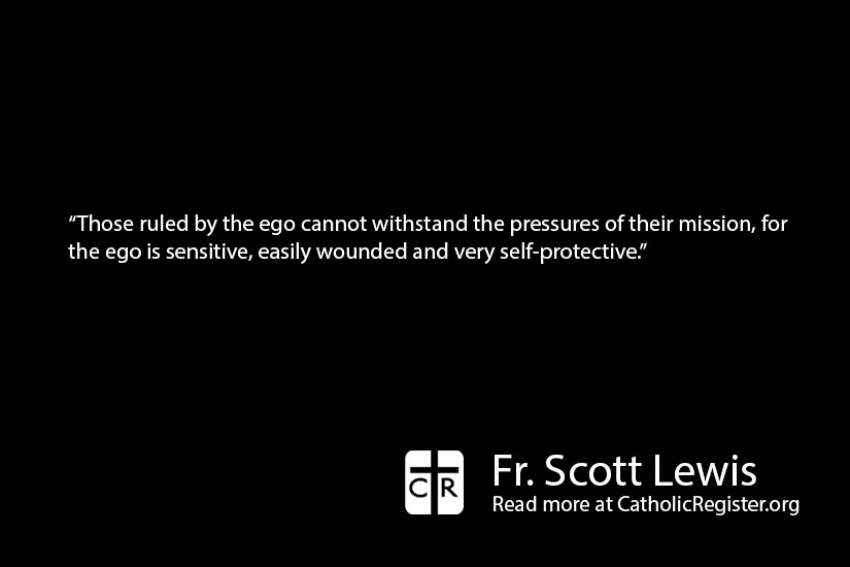The shadowy figure who we call the Suffering Servant learned that gratitude and glory are seldom the rewards for obedience to God.
He was perhaps an unnamed figure known to the exile community in Babylon of the sixth century B.C., or a symbolic collective character used by the author to portray Israel. Ridicule, physical and psychological abuse, and rejection greeted his words and efforts.
He shared the experience of so many great reformers, saints, prophets and those who struggle for freedom and justice. Throughout it all he showed serene determination.
We wonder what gave the Suffering Servant and the many men and women throughout history the strength and inspiration to continue their missions faithfully. The Suffering Servant passage gives us some clues.
Servants of God cannot be full of themselves — it’s not about them, but about God. Those ruled by the ego cannot withstand the pressures of their mission, for the ego is sensitive, easily wounded and very self-protective. It lacks patience, tolerance and a balanced, peaceful sense of the self.
The other danger is that of cloaking their own issues and desire to dominate with claims to divine inspiration and authority. Servants must also be in touch with the deepest levels of their innermost selves and attuned to listening to the promptings of God. This is difficult because listening and discerning are not things that come naturally and there are many counter-influences in our culture.
Docile in the hands of the Lord, servants listen to the instruction and guidance that wells up from within. Most of all, they offer words of hope and encouragement to those who are faltering and discouraged. Ranting and condemning have no place. This presents us with a perfect lifelong model for service and discipleship. It is available to anyone with humility, patience, openness and the desire to service God and humanity.
As the supreme example of the Suffering Servant, Jesus even set aside His divine prerogatives and took on the lowliest state. He did not cling to anything, but emptied Himself completely, taking on the lowliest human state.
He was obedient to God, even to the point of death on the cross. At this point, many would wonder if it was worth all that — why should anyone make themselves so vulnerable? But it was that very act of self-emptying, all for the sake of others, that was the source of His exaltation and power.
Raised in stature above every human entity, He is acclaimed as Lord of all. His life and death was a living out of His insistence that those who cling to their lives lose it, while those who lose it for the sake of God receive it back many times over.
Paul proposes this as the model or paradigm of Christian living — humility and loving service. We will never lose when we choose this path for our life. The more we give away, the more we will gain.
All of this is described in detail in the Passion narrative of Matthew. Rather than focusing exclusively on the humiliation, suffering and death of Jesus, let us also consider the great love motivating Him.
Let us also pray that our own lives be defined by that same love. By means of this experience, Jesus revealed to us what harm ignorance, rigidity and hatred can do and the capacity for it that we all possess.
But He also revealed its antidote — limitless, self-giving love. This love, which is within us to give, is what reconciles communities and heals our world. Everything is present in the story — human treachery and betrayal, fear, cowardice, grief, unreliability and cruelty. It is a spectacle that shows the whole range of human behaviour and attitudes.
Throughout it all, there is the unwavering devotion and love of Jesus. We crucify Jesus whenever we allow fear and lack of love to possess us so that we behave in similar ways — or far worse, to be utterly indifferent to human suffering.
The Passion narrative is our journey, too. Although we probably won’t be called upon to experience the passion in its extreme and dramatic form, the pain, tears and burdens of humanity challenge each of us to turn our hearts and minds to compassionate and selfless action.


